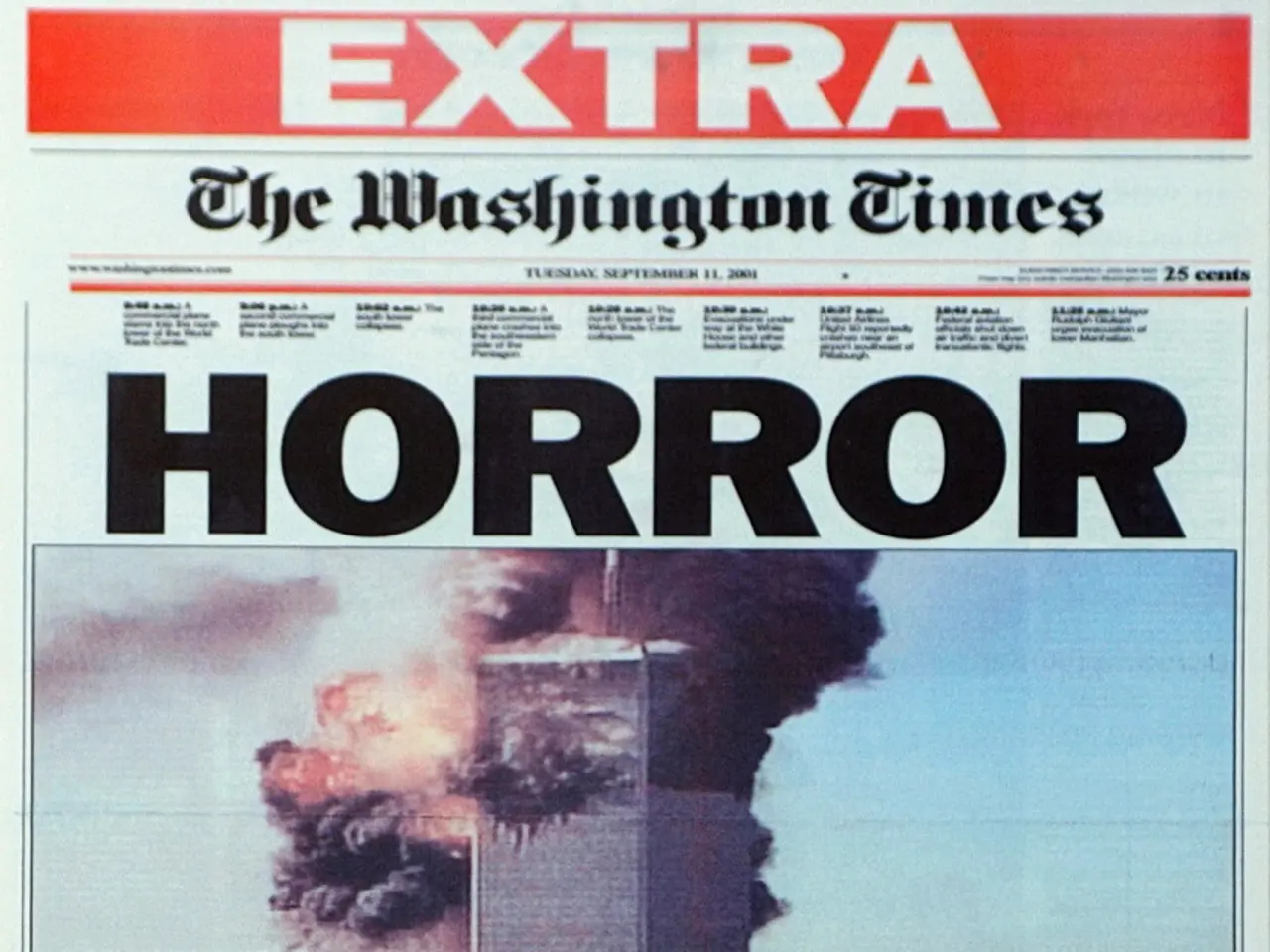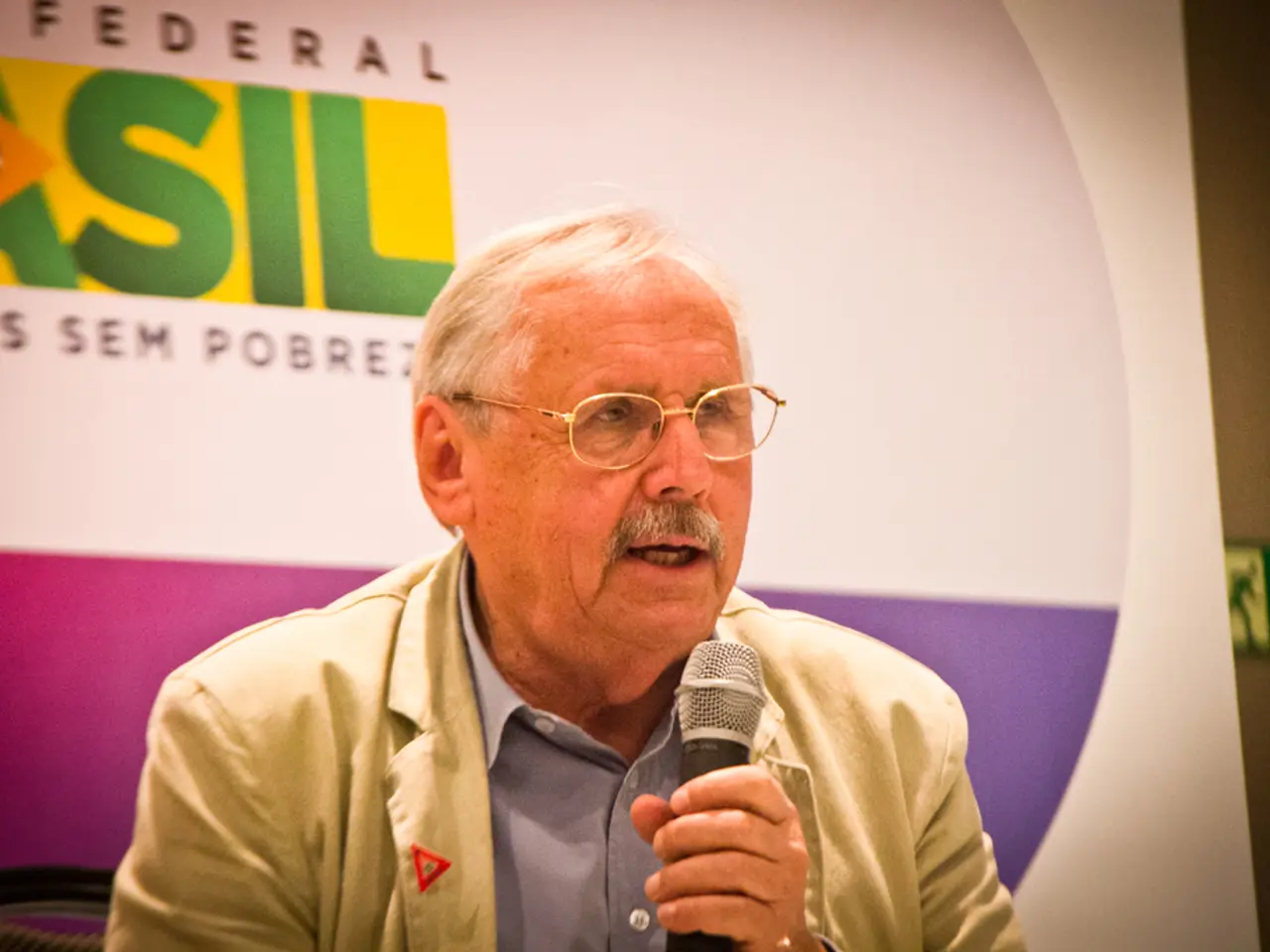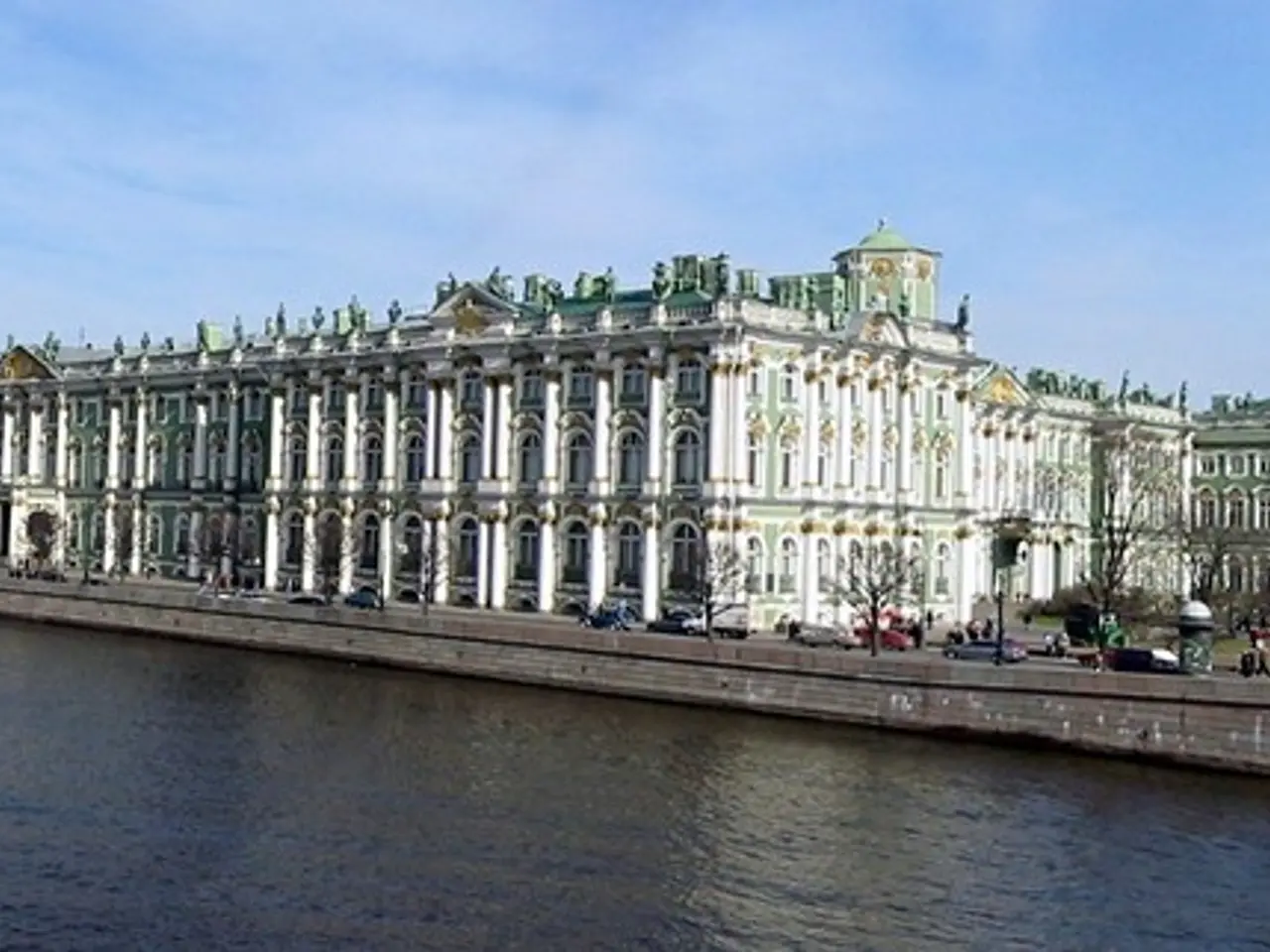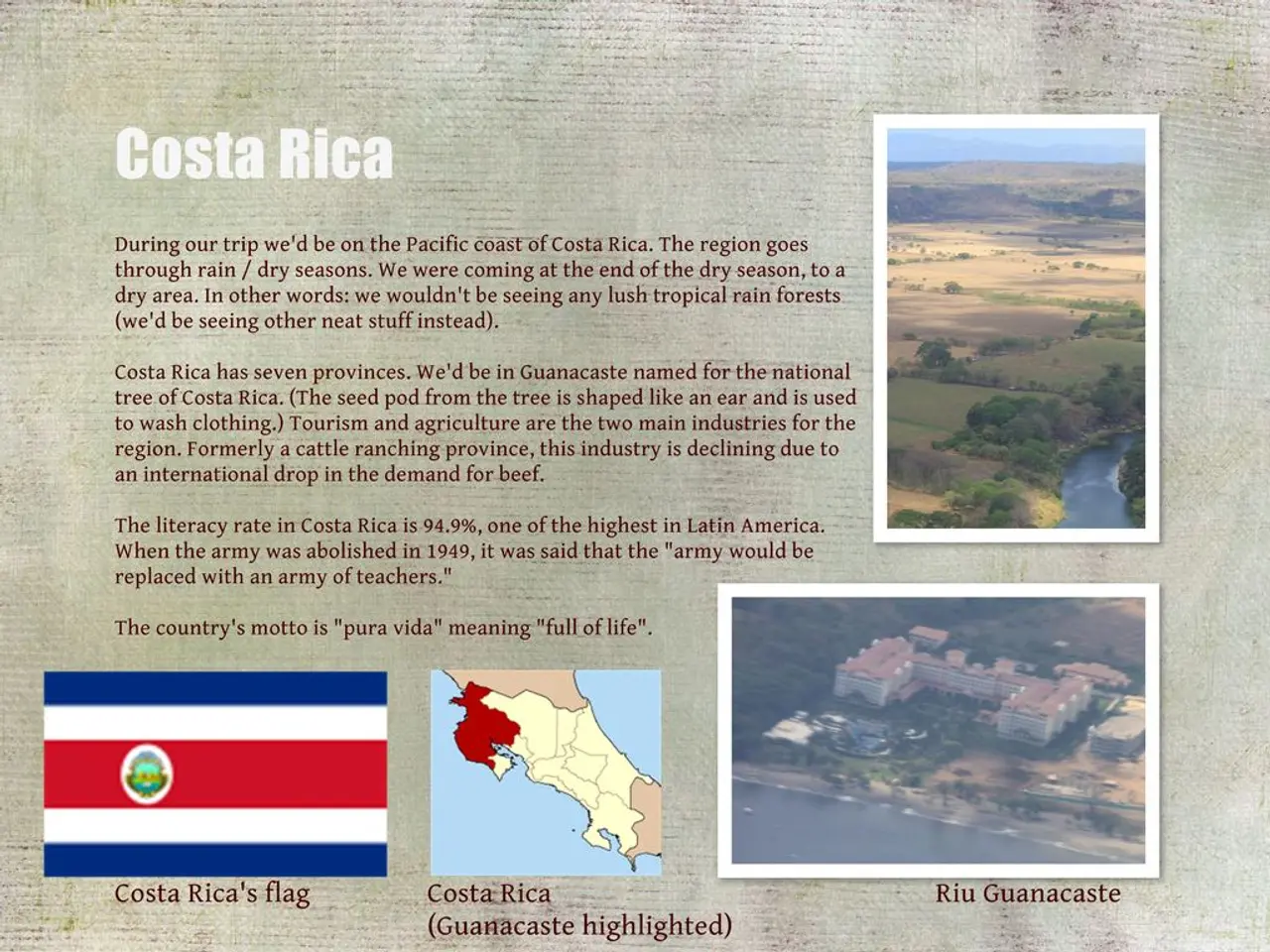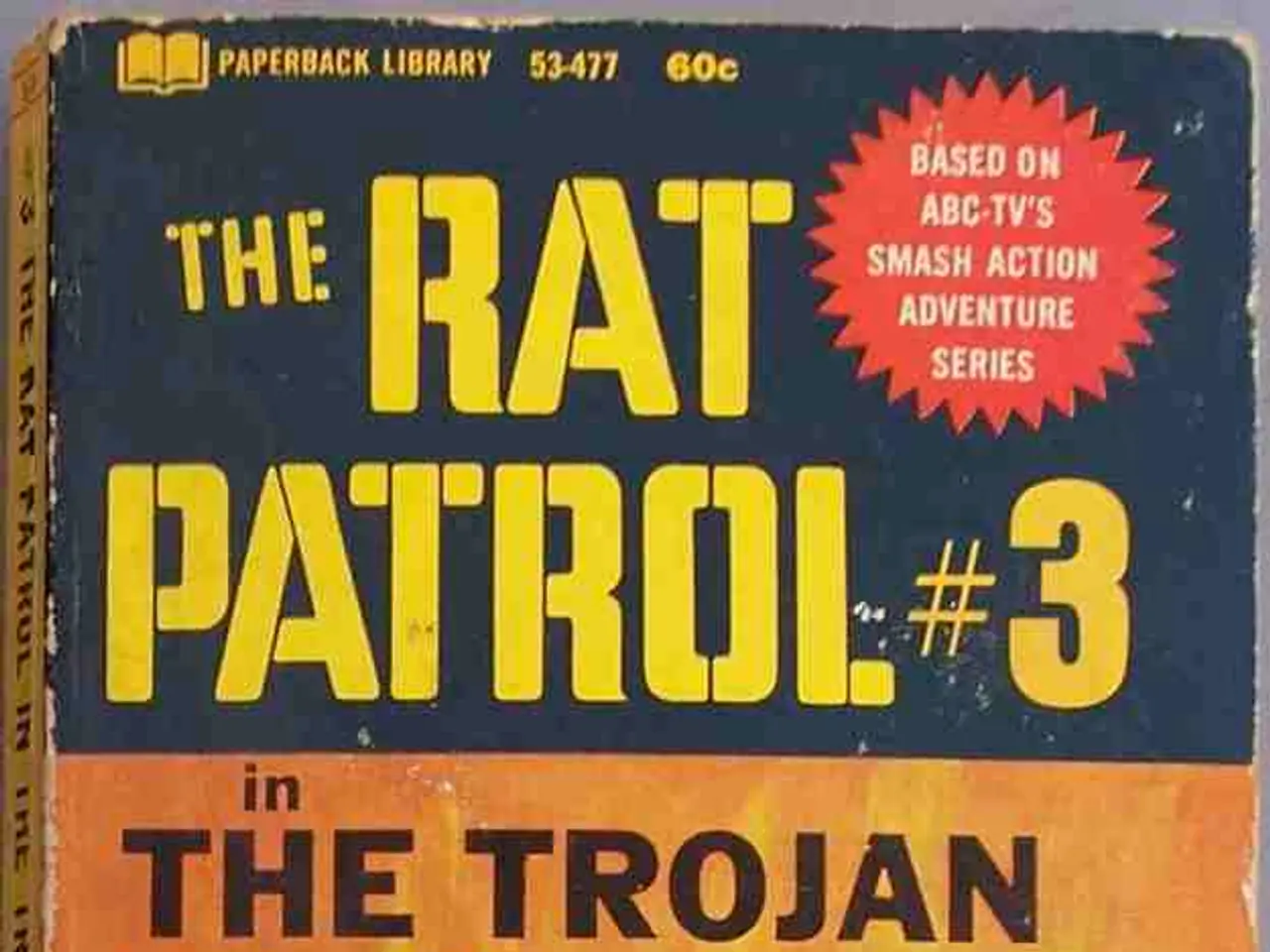Israel's Tough War and Bold Vision for the Middle East and Europe
Israel aims for an optimistic post-conflict Middle East scenario and determined ties with the European Union.
In the midst of its military advances against Iran, Israel isn't holding back in sharing its reasons for going to war and its vision for a safer Middle East and Europe. Ambassador Haim Regev, Israel's envoy to the EU and NATO, revealed the nation's hardline stance in an exclusive interview with us.
Israel, according to Regev, is engaged in a challenging fight not just to annihilate Iran's nuclear program and missiles but also to shield Europe, save lives in Ukraine, and create a fertile ground for growth and new possibilities in the Middle East. But it's clear: Israel isn't negotiating with anyone regarding the Iran and Gaza threats.
Regev made it plain that Israel "is not negotiating with anybody on the Iran and Gaza threats" when asked about a possible reset with the EU following the convulsions of the Gaza crisis. "We are now doing what is good for the state of Israel, removing the nuclear and missile threat and also on the other hand releasing the hostages from Gaza and eliminating the capability of Hamas to stay there," he explained.
Regev said Israel's decision to take action against Iran sprung from a necessity, acknowledging that diplomacy, agreements, and sanctions failed to suppress the threat. Regarding regime change in Iran, the Israeli ambassador focused on Israel's offensive in Iran "exceeding the original military plan, getting close to achieving all goals for this war". As a result, Israel now possesses the firepower to tackle multiple fronts, enabling it to "remove the nuclear and missile threat from Iran and the terror threat in Gaza".
The consequences of Israel's hard-hitting action against Iran, though, go beyond the Middle East, Regev said, emphasizing it's all about protecting Europe because "Iran poses a threat also to Europe".
"When people ask me, why not to solve it with diplomacy, I ask why does Iran need a 4,000-kilometer missile to reach Brussels and other places? For what do they need it? For what? Is there any threat that Europe poses to Iran militarily? Why is Iran developing this missile? Why is Iran promoting terror? Why is Iran supporting Russia?" Regev interrogated.
Following up with a straightforward declaration for Israel, the ambassador affirmed that "targetting Iranian missile facilities is saving Ukrainian lives, by harming Iran’s ability to provide missiles and drones to Russia, contributing or diminishing their capability to harm Ukrainians through Russia because Iran is one of the big supporters of Russia’s war with Ukraine."
When it comes to Moscow's offer to mediate the Iran-Israel conflict, the ambassador brushed it aside swiftly, stating "right now we are not interviewing leaders for who is going to be the mediator."
Throughout these developments, Regev sees the current reality as "an opportunity", attributing this to Israel’s success. "For the first time in years, there is a hope for the people of the region," he stated.
Israeli policymakers view radical groups like "the Mullahs in Iran, the Houthis in Yemen, Assad in Syria, Hezbollah in Lebanon" as controlling the regimes in countries surrounding Israel. "The idea was let's speak with them, international community, let's try to reach an agreement, let's start to do something, let's start to appease them. It didn't work," Regev contended.
As a result, Israel sees any future diplomacy in a completely different paradigm. The ambassador emphasized that once Israel has successfully tackled most of the threat, Europe and the international community should step in and verify that Iran is not going to return to being a dangerous player.
Israel has no interest in a large-scale war, Regev asserted, pointing out the need for Europe and the international community to initiate a new framework where "diplomacy will play a role, but this time will be more concrete, practical with specific outcomes."
EU to Influence Iran Nuclear Talks from Sidelines in GenevaAfter Latest Strike on Arak, How Did Israel’s Attacks Impact Iran's Nuclear Program?Israel Completely Rejects EU Decision to Review Trade and Cooperation DealIsrael Denies Entry to Two EU Lawmakers, Accusing One of Supporting BoycottsMarco Rubio Backs Trump’s Gaza Proposal as He Visits Israel in First Middle East Tour
Enrichment Data:
Israel's wanton stance against Iran and Hamas encompasses eliminating their respective nuclear and missile capabilities, which Israel considers an immediate and burgeoning threat to its existence, as well as a perceived menace to Europe. Haim Regev emphasizes that Israel's confrontation with Iran was necessitated due to the failure of diplomacy, international agreements, and sanctions. Israel's offensive in Iran aims to accomplish its strategic objectives, including thwarting Iran's military ambitions and terror activities across the Middle East. For Israel, this is a war necessitated for its long-term survival and for the betterment of Europe and the entire region. Consequently, Israel's actions may contribute to the deterioration of its diplomatic relations with the EU due to dwindling European support in the wake of the Gaza war.
The tough war Israel is waging against Iran is driven by the need to eliminate Iran's nuclear and missile capabilities, not just for Israel's security, but also to protect Europe from potential threats. Haim Regev, Israel's envoy to the EU and NATO, asserted that Israel's confrontation with Iran was necessitated due to the failure of diplomacy, international agreements, and sanctions. This war is seen as a strategic necessity by Israel for its long-term survival and for the betterment of Europe and the entire region.
Israel's political stance, as articulated by Ambassador Regev, involves a hardline approach towards Iran and Hamas, prioritizing the removal of immediate threats to Israel and Europe. This approach, however, may lead to strained relations with the EU, especially in the context of the ongoing Gaza conflict. Yet, Israeli policymakers see this as an opportunity for a new diplomatic framework, one that is more concrete and practical, with specific outcomes.
